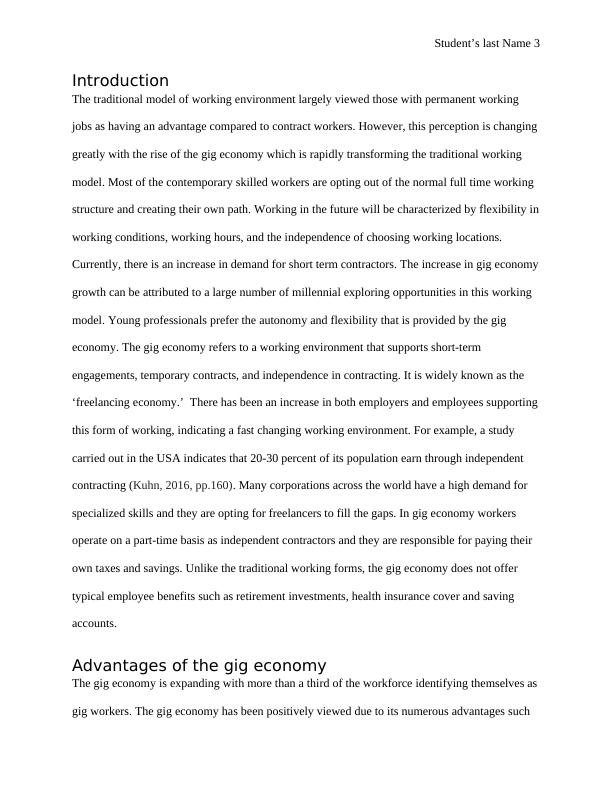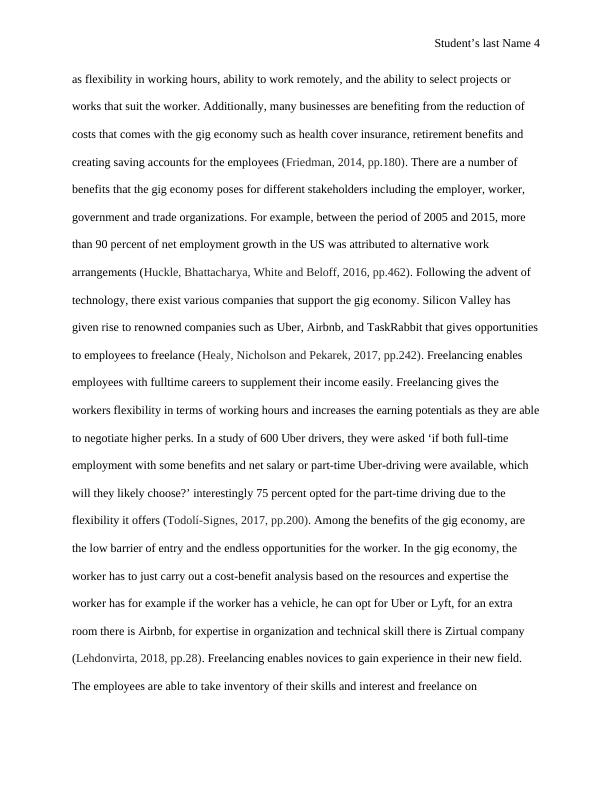Advantages and Negative Implications of the Gig Economy
11 Pages3163 Words322 Views
Added on 2023-04-20
About This Document
This study explores the advantages and negative implications of the gig economy. It discusses the flexibility, cost reduction, and job opportunities it offers, as well as the risks and challenges faced by workers, employers, and trade unions. The gig economy is transforming the traditional working model, providing opportunities for freelancers and independent contractors.
Advantages and Negative Implications of the Gig Economy
Added on 2023-04-20
ShareRelated Documents
End of preview
Want to access all the pages? Upload your documents or become a member.
Best Reflects the Reality of Canada’s Gig Workers
|7
|1791
|14
Is the gig economy the best deal for gig workers?
|33
|8943
|138
Analysis of Gig Economy
|10
|2948
|39
Gig Economy and Lack of Policy: Challenges and Suggestions
|16
|747
|130
Workers in the So-Called ‘Gig Economy’ Such as Uber Drivers and Foodora Riders Should Be Treated as Employees for all Purposes
|25
|7870
|476
The Gig Economy Article | HR Benefits and Challenges
|14
|3493
|74




